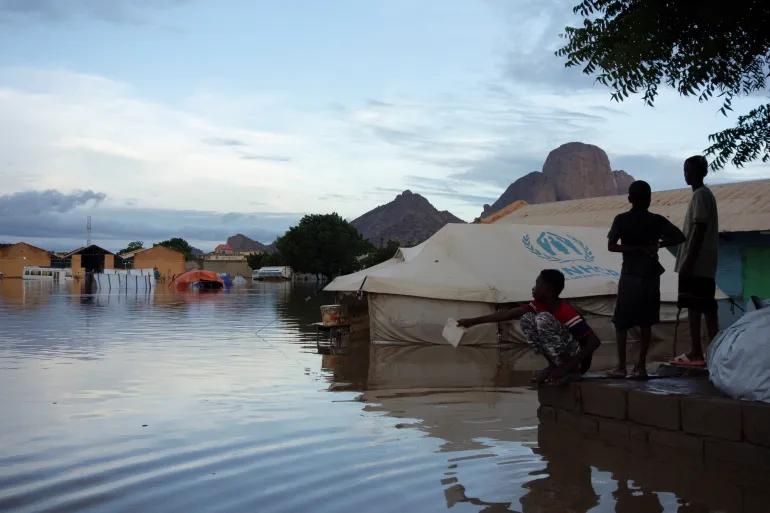UN Warns Climate Change Is Escalating Global Refugee Crisis, Doubling Displaced Population to 120 Million
12 November 2024 - 09:24

A new United Nations report warns that climate change is increasingly driving a global refugee crisis, forcing millions to flee regions already destabilized by conflict. Released by the UN Refugee Agency (UNHCR) at the COP29 climate summit in Azerbaijan, the report reveals that over the past decade, the number of forcibly displaced people has doubled to more than 120 million, with three-quarters of these individuals now in countries highly vulnerable to climate hazards such as floods, droughts, and cyclones.
“Climate change is a harsh reality for the world’s most vulnerable people,” said Filippo Grandi, the UN High Commissioner for Refugees, who emphasized the urgent need for action. “The climate crisis is driving displacement in regions already hosting large numbers of people uprooted by conflict and insecurity, compounding their plight and leaving them with nowhere safe to go.”
The report highlights several regions where conflict and climate hazards intersect, further straining already vulnerable populations. In Sudan, for example, the ongoing conflict has driven more than 700,000 people across borders into Chad, where conditions remain precarious due to severe droughts and flooding. Similarly, over 70 percent of Myanmar’s refugees have sought refuge in Bangladesh, a nation frequently struck by extreme cyclones and floods.
Grace Dorong, a climate activist and former refugee from South Sudan, underscored the impact of climate change on communities already displaced by violence. “In our region, where so many people have been displaced for so many years, we see the effects of climate change before our very eyes,” she said. “If decision-makers listen to us, we can be part of the solution, too.”
The COP29 summit in Azerbaijan, attended by representatives from nearly 200 countries, has taken on renewed urgency in light of these findings. Discussions center on climate funding and the pressing need for investment in the Global South, where climate impacts are most severe. Despite record investments in renewable energy globally, only 15 percent of these funds reach developing countries, according to Damilola Ogunbiyi, the UN’s special representative on sustainable energy.
“We have a record-breaking year of investments in clean renewable energy, but the distribution is skewed,” Ogunbiyi said. “My key expectation is to see meaningful action on climate finance that reaches the regions most affected by climate-induced displacement.”
Amid mounting urgency, delegates at COP29 face the challenge of securing commitments to increase the current $100 billion climate funding target, particularly as wealthier nations resist escalating financial obligations. The stakes have been further heightened by the recent U.S. presidential election of Donald Trump, who has previously threatened to withdraw from the Paris Agreement. The absence of high-level delegations from both the U.S. and China at COP29 has added tension to negotiations.
With record temperatures anticipated in 2024, climate advocates at the summit stress that addressing climate displacement must be prioritized. Without immediate action, the UN warns that millions more could face displacement, with vulnerable regions on the front lines bearing the brunt of climate change’s destabilizing effects.
The UN’s report serves as a stark reminder of the humanitarian toll of climate change and a call to action for governments and global leaders: support is needed now to prevent further catastrophe for the millions already caught in the crossfire of conflict and climate.

